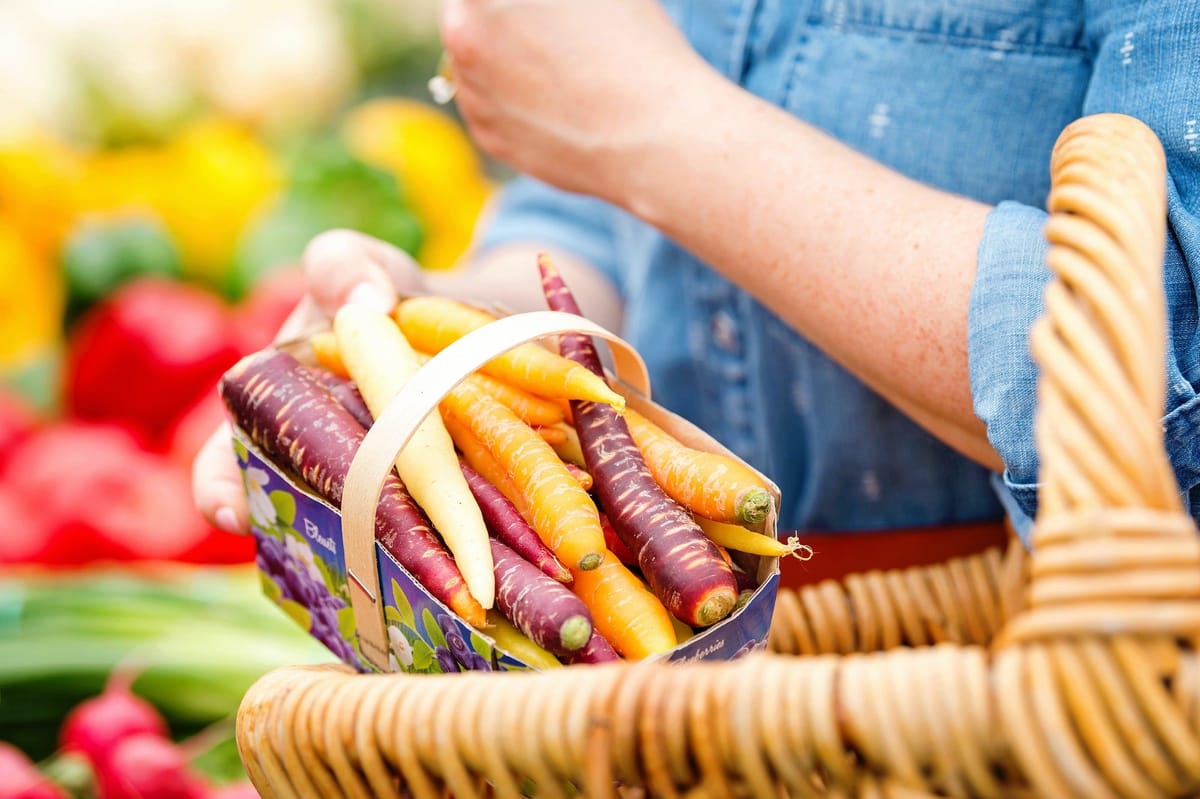The Importance of Organic Living and Its Health Benefits
Organic living is inherently non-wasteful and will ensure that resources such as water are not only sourced sustainably but also recycled and reused.

What is Organic Living?
Organic living is embracing and adhering to a chemical-free lifestyle. It entails doing away with any inorganic food, chemically produced food, or food that is not fresh or has gotten produced using artificial fertilizers and chemical inputs. Organic living is against consumerism in its very nature and concerns itself with ensuring an all-around green, sustainable, and self-reliant lifestyle.
How to Commit Yourself to Living Organically
Most of us would think that having something organic for a meal and mixing it with unhealthy food would mean that we are taking steps to lead healthier lives. It is not true as to lead an organic lifestyle one needs to commit themselves to vigorous and strict organic diets and living.
As such, any individual interested in organic living should ensure that they entirely do away with any artificially or chemically induced products and food. Organic living not only touches on food but the overall lifestyle, and the individual needs to ensure that they live an all-around organic lifestyle.
Organic Living and How It Helps in Self-Sufficiency
Self-sufficiency is a massive part of organic living. The kind of organic living I am talking about is off-grid organic living. i.e., literal living outside the electrical and water grid organic living. It explicates living in a manner where one’s consumption is supplied by their own efforts and complemented by the various ways they discard waste. An excellent example is water recycling.
The Non-Wasteful Nature of Organic Living
Organic living is inherently non-wasteful and will ensure that resources such as water are not only sourced sustainably but also recycled and reused. The same holds for electricity or power, and an organic lifestyle would ensure that energy is sourced sustainably and from renewable sources.
The Sustainably Cyclic Nature of Organic Living
Self-sufficiency is, in this light, ensuring that the individual has their own water and electricity, if possible, and that these resources are not wasted but utilized in a sustainable and environmentally-friendly manner. Think of living on an island and producing your own vegetables and fruits, fishing for food, and having an organic system of consumption and waste disposal. When the individual ensures that their carbon footprint is zero, it complements how organic their lifestyle is.
Renewable Energy and How It Supports Organic Living
Energy is a crucial part of organic living. There are millions and millions of vehicles in the world, and, unfortunately, their use leads to air pollution due to the CO2 that combustion engines produce.
In cities such as Delhi or Singapore, where there are massive traffic jams and lots of cars, buses, and motorcycles, air pollution is a huge problem. In such locations and many others, air pollution gets so bad that people have to get asked not to drive their cars to the city to ensure that air pollution does not worsen.
Air Pollution and Smog and How It Affects Health
In very dire situations, such pollution leads to smog and a darkening of the sky in a horrid representation of a lack of sustainability. Such cities have massive carbon footprints, and the residents and people that live and work there have to wear face masks to prevent respiratory illnesses.
Living in such an environment leads to a lot of health issues, including chronic conditions and ailments such as cancer. It is unfortunate that, as the human species, we have failed in taking care of our environment as much as we could, and should. All is not lost, and even as we now discover the ravages of climate change, a lot can get done to mitigate it.
The Importance of Sourcing Energy Sustainably as Part of Organic Living
Sourcing energy from renewable sources or sustainable raw materials, including water, wind, and geothermal, is crucial to how well and sustainable the world will be in the future. Renewable sources of energy, such as wind energy, hydroelectricity, geothermal energy, and many others, are the future. They are energy sources that will facilitate independence and a transition from the use of fossil fuels to more sustainable energy.
Numerous emergent technologies are getting researched, and we must undertake studies to find more sources of renewable energy. The world is like a big machine that runs on the cogs of energy to facilitate modern living. There is a need, therefore, for increasing sustainability in the energy sector.
Organic Food and Why It is Crucial for Organic Living
Organic food is a huge part of organic living as we, as the human species, are the most prominent and dominant consumers on the planet. You can imagine the kind of food that gets consumed on a daily basis. Sadly, a third of all food that gets consumed in a day gets wasted and becomes discarded in one way or another. In most times, waste, including food waste, is disposed of in landfills where it gets buried.
The Scourge of Landfills
It can be so proliferated that in some parts of India, such as Mumbai, for instance, landfills entail mountains of garbage and waste. The resulting environmental degradation and ecological damage are catastrophic. Such dumps harbor disease and can heavily inflict on the quality of life of the nearby communities.
The Failing Waste Disposal Mechanism of Big Cities
A lot of waste is produced in urban centers, and unfortunately, it gets discarded in the suburbs. Numerous cities globally have failed to instigate and facilitate waste disposal facilities and amenities in an environmentally-friendly way. It is only in a few places such as Germany, where city waste disposal gets conducted amicably and in a way that complements environmental conservation.
How to Effectively Mitigate Wastage
Wastage is an end product of consumption and consumerism, and it can become mitigated by ensuring that all the food or products get consumed. At the same time, those that remain unused or unconsumed are reused, recycled, and reduced. Alternatively, individuals with a kitchen garden can create compost manure by composting their organic waste. Moreover, fruits and vegetable peels can become used as mulch for the kitchen garden.
Food Wastage and Why It Propagates Mass Production and Consumerism
Food is essential for human life, and as a basic need, we consume food every day. A lot of it goes to waste, and you can imagine that if we all ate from one big plate, a third of what we would be consuming would become discarded. As a way to ensure organic living, food wastage should get minimized at all costs.
How Supermarkets and Stores Can Donate Leftover and Nearly Expire Food to Food Banks and Avoid Wastage
In major cities worldwide, there are food banks where homes and supermarkets, and even grocery stores and markets can donate food that is leftover or that has surpassed the expiry date. From a production perspective, not all goods that have gone beyond their expiry date have gone bad. As such, such goods and especially foodstuffs can get donated to food banks or reused as input in other meals.
How to Implement a Give-and-Take System in a Restaurant to Mitigate Food Wastage and Conserve the Environment
A good example is fruits that have become smashed in the process of delivery or within the market. These can get sorted, and those that are usable input into making juices or smoothies. Some restaurants will also provide meals at a premium to customers enabling them to offer free meals to those who are unable to pay for a meal. Such a give-and-take system would complement organic living and reduce wastage.
Community Gardens and How They Can be Impactful in the Current Pandemic and Consequent Lockdowns
In some cities, there are community gardens where individuals produce their own food as a community, and especially in the current pandemic and lockdown, they can donate such food to those in need. In places such as the UK, for instance, those who are shielding against COVID-19 may have donations of fresh fruits and vegetables donated to them. It ensures that they have fresh produce and is a sign of the inner beauty of the human species when such food is donated.
The Individual Effort in Organic Living
In terms of organic living, personal or individual efforts are crucial. We sometimes ignore our individual efforts and belittle them as too small or insignificant. However, if I saved twenty liters of water a day, and a million people in my city did the same, we would save twenty million liters of water that day.
How We Can Spread the Word about Organic Living
As keen environmentalists, with the intent to mitigate climate change, the one million and one of us would each educate five people on sustainability and encourage them to save twenty liters of water a day too.
We would educate five million and five people, and the six million and six of us would save about one hundred and twenty million liters a day. Add individuals who get wind of this phenomenon and join in, and as a city, our water consumption would reduce over a year to almost half of the initial consumption.
The Importance of Educating Others on the Conservation of Natural Resources
If, as the world, we joined and educated others on such natural resources’ conservation, we would do wonders. You can imagine how such an effort would improve air pollution if those with cars avoided taking their cars with them for at least a day every week. Such is the power of individual efforts. Collectively, even the smallest of steps would be humongous in the long term. Multiply twenty liters of water a day by 365, and then you will see that you, as an individual, can change the world, twenty liters of water at a time.
Why We All Need to Educate Ourselves on Organic Living and Its Benefits
Education is critical in the fight against climate change. It is so so crucial that all of us educate others on conservation, sustainability, and organic living. For instance, those who enjoy meaty burgers may think that organic food is stale and tasteless. However, if educated, they can discover that organic burgers may be so enticing and delicious that the individual would not want to go back to eating a meat burger.
Why It is Such a Wonderful Time to Go Organic
We are at such a wonderful time for organic living and organic food, as more and more companies are venturing into plant-based food products. More and more of us are learning that going organic is something that can be tasty, interesting, and very conscious as we deal with climate change and its adverse effects. Even for those who stay in, organic food restaurants use technologies to take orders and can deliver sweet, plant-based organic food to your doorstep.
The Minimal Role of Technology in Organic Food
We are so blessed to be living in an age where delivery technologies and eCommerce are existent and work together to provide products and services where needed and when needed. It is crucial, however, that we do not bite our own tails in the race to organic living by using unnecessary energy to have our food delivered.
If possible, please go to the organic food restaurant and buy your meal there. It would be insensible to have a delivery motorcycle move from one end of the city to the other just to bring you a single meal. If your food delivery company does numerous deliveries for every run or uses bicycles or electric motorcycles or electric means, then it is okay to have your food delivered as the carbon footprint of the delivery would be minimal.
Organic Urban Farming and Its Importance as Part of Organic Living
All of us should have a kitchen garden, and those without can plant some vegetables in sacks. Your rooftop, balcony, the terrace of your apartment, or even the small backyard could become a flourishing vegetable garden. City farming, urban farming, or urban agriculture is a huge thing, and anyone with some space, especially rooftop space, can undertake aquaponics and hydroponics to produce their own fruits and vegetables even in an urban setting.
It would ensure that the individual consumes organic and fresh vegetables and does not have to rely on chemically preserved, frozen, or unfresh food or food that has become produced using artificial fertilizers. Modern agriculture can also be a hustle, and any individuals with the will and know-how can undertake urban farming as a way to complement their income. It can be a full-fledged hustle, and those who have invested in city farming and greenhouses in urban centers have profited massively from the growing sector.
The Pitfalls of Conventional Food Production
The food industry globally is a trillion-dollar sector with supplies of nearly two trillion U.S. dollars recorded in the year 2019. It is insane to think that as the world, we consumed over one trillion and seven hundred billion dollars worth of food. Again, very unfortunate that a third of this food may have become lost through wastage.
No wonder the world is choking on all the inorganic and unsustainable farming that gets done every year. When food gets produced with chemical inputs, these chemicals sip into waterways and end up in the ocean where they destroy the natural ecosystem and kill marine life.
The Wasteful Nature of Inorganic Farming
Inorganic farming should be frowned upon as it is wasteful. Most of the inorganic farming that happens in the U.S., for instance, is to produce soybeans. The unfortunate thing is that most of this soy is not for human consumption but gets produced for livestock.
As such, a lot of the use of artificial chemicals and inorganic agriculture happening in soy production gets geared towards inputting feed into livestock keeping. The livestock may then become meat, and ultimately, such inorganic farming feeds into meat consumption. By the time the steak reaches your table, it has such a carbon footprint that it is rather you had kept your own livestock.
Organic Farming and Why It is a Crucial Part of Organic Living
Organic farming is the way to go, and countries such as Australia have outdone themselves. Organic farming is very much a craft and can be a source of wealth and good food, such as keeping bees and honey. Certified organically produced or certified organic foods are marked as such, and may cost more. However, you would be buying better quality at a steeper price and also contributing to lowering the global carbon footprint.
The Importance of Always Buying Organic
If possible, always buy organic foods, fruits, and vegetables as it would complement environmental conservation. It would also encourage organic farmers and organic farming as a concept, leading to more and more farmers, especially large-scale ones, opting to undertake organic agriculture. The incentivization of organic agriculture through the growth of the organic food market and the sector is an excellent way to shift the world into organic agriculture.
Why It is Important to Move Away from Artificial Farm Inputs
Consequently, to move the world away from the use of artificial fertilizers and chemical farm inputs. It is shocking to realize that some big pharma and agricultural companies even use harmful and cancerous chemicals in their agricultural products. Such toxic substances harm not only the farmer or producer, but also the ecosystem, the environment, and you as the end consumer. It becomes a deadly cycle for profit and is not the way to go.
The Need for Self-Education on Organic Living
Educate yourself on organic living, educate those around you, and let us all go green. An organic lifestyle is the way to go. Enjoy a plant-based burger, and be proud of playing your role in ensuring a better tomorrow. It sounds good because it is good. Trust me. Try organic honey, and you will be pleasantly surprised.





